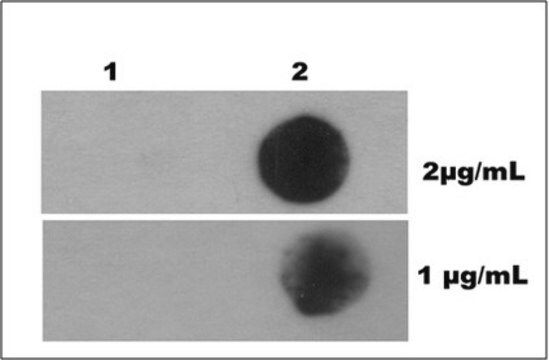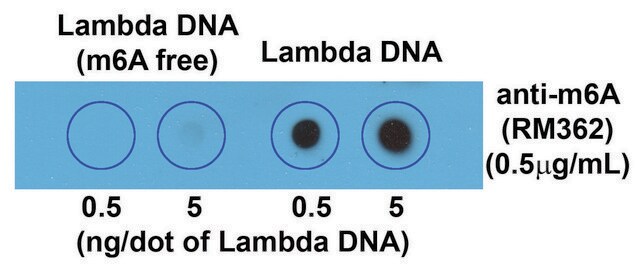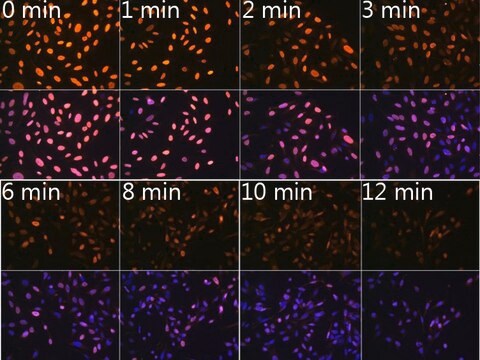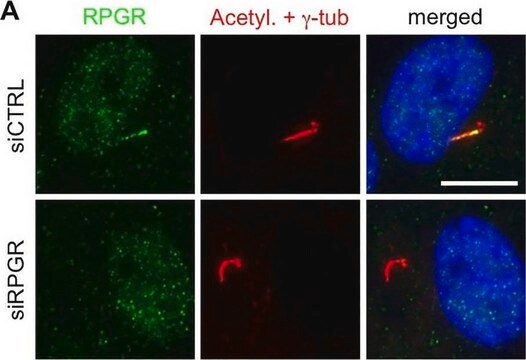ZMS1124
Anti-m6A Antibody, clone 17-3-4-1 ZooMAb® Mouse Monoclonal

recombinant, expressed in HEK 293 cells
Synonyme(s) :
m6A
About This Item
Produits recommandés
Source biologique
mouse
Niveau de qualité
Produit recombinant
expressed in HEK 293 cells
Conjugué
unconjugated
Forme d'anticorps
purified antibody
Type de produit anticorps
primary antibodies
Clone
17-3-4-1, recombinant monoclonal
Gamme de produits
ZooMAb® learn more
Forme
lyophilized
Produit purifié par
using protein G
Réactivité de l'espèce (prédite par homologie)
all
Conditionnement
antibody small pack of 25 μL
Caractéristiques du produit alternatif plus écologique
Waste Prevention
Designing Safer Chemicals
Design for Energy Efficiency
Learn more about the Principles of Green Chemistry.
Validation améliorée
recombinant expression
Learn more about Antibody Enhanced Validation
sustainability
Greener Alternative Product
Technique(s)
dot blot: suitable
flow cytometry: suitable
immunocytochemistry: suitable
Isotype
IgG1λ
Séquence de l'épitope
Unknown
Autre catégorie plus écologique
Conditions d'expédition
ambient
Température de stockage
2-8°C
Modification post-traductionnelle de la cible
unmodified
Description générale
Spécificité
Immunogène
Application
Evaluated by DOT blot analysis with RNA oligos with m6A modification.
Dot Blot Analysis (DB): A 1:1,000 dilution of this antibody detected N6-methyladenosine in RNA oligos with m6A modification.
Tested Applications
Flow Cytometry Analysis: Flow Cytometry Analysis (FC): 1 µg of this antibody detected m6A in U2OS cells treated with 10 M BrdU, 24-28 h prior to UV-C treatment.
Immunocytochemistry Analysis: Immunocytochemistry Analysis (ICC): A 1:100 Dilution of this antibody detected m6A in U2OS cells treated with 10 M BrdU, 24-28 h prior to UV-C treatment.
Note: Actual optimal working dilutions must be determined by end user as specimens, and experimental conditions may vary with the end user.
Description de la cible
Forme physique
Stockage et stabilité
Informations légales
Clause de non-responsabilité
Vous ne trouvez pas le bon produit ?
Essayez notre Outil de sélection de produits.
Code de la classe de stockage
11 - Combustible Solids
Classe de danger pour l'eau (WGK)
WGK 1
Point d'éclair (°F)
Not applicable
Point d'éclair (°C)
Not applicable
Faites votre choix parmi les versions les plus récentes :
Certificats d'analyse (COA)
Vous ne trouvez pas la bonne version ?
Si vous avez besoin d'une version particulière, vous pouvez rechercher un certificat spécifique par le numéro de lot.
Déjà en possession de ce produit ?
Retrouvez la documentation relative aux produits que vous avez récemment achetés dans la Bibliothèque de documents.
Notre équipe de scientifiques dispose d'une expérience dans tous les secteurs de la recherche, notamment en sciences de la vie, science des matériaux, synthèse chimique, chromatographie, analyse et dans de nombreux autres domaines..
Contacter notre Service technique








